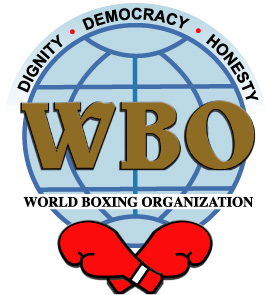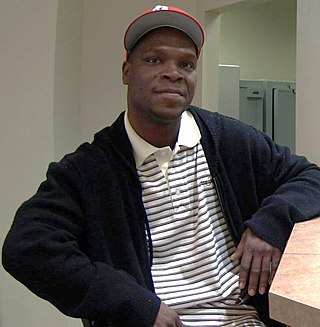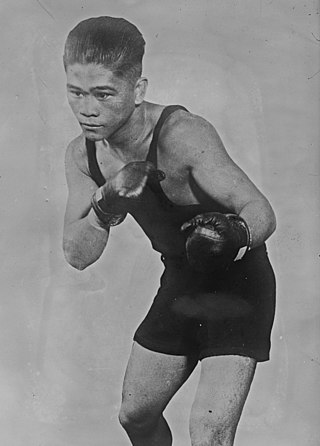
The World Boxing Organization (WBO) is an organization which sanctions professional boxing bouts. It is recognized by the International Boxing Hall of Fame (IBHOF) as one of the four major world championship groups, alongside the World Boxing Association (WBA), World Boxing Council (WBC), and International Boxing Federation (IBF). The WBO's headquarters are located in San Juan, Puerto Rico.

Heavyweight is a weight class in combat sports and professional wrestling.

Cory Spinks is an American former professional boxer who competed from 1997 to 2013. He held multiple world championships in two weight classes, including the undisputed welterweight title from 2003 to 2005, and the IBF junior middleweight title twice between 2006 and 2010. Additionally, he challenged once for the lineal middleweight title in 2007.
In boxing, the undisputed champion of a weight class is the boxer who simultaneously holds world titles from all major organizations recognized by each other and the International Boxing Hall of Fame. There are currently four major sanctioning bodies: WBA, WBC, WBO, and IBF. There were many undisputed champions before the number of major sanctioning bodies recognizing each other increased to four in 2007, but there have been only 19 boxers to hold all four titles simultaneously.

Roberto Garcia Cortez is a Mexican-American former professional boxer who competed from 1992 to 2001, and held the IBF junior lightweight title from 1998 to 1999. He has since worked as a boxing trainer, and was voted Trainer of the Year by The Ring magazine in 2011, and by the Boxing Writers Association of America in 2012. He is the older brother of professional boxer Mikey Garcia, who was a world champion in four weight classes.
In certain sports, when a sportsman wins three crowns, titles, medals, belts or other distinctions, the athlete is called a triple champion.

In combat sports where champions are determined by challenge, the lineal championship in a weight class represents an intangible world title first held by the victor of a bout between top contenders in the division. A fighter who defeats the reigning champion in a match within the same weight class becomes the next lineal champion. In professional boxing, the lineal champion is informally known as "the man who beat the man."
In different sports when a sportsman wins seven crowns, titles, medals, belts or another distinctions is called a Septuple Champion.

An octuple champion is a boxer who has won major world titles in eight weight classes. To date, the only octuple champion is Manny Pacquiao, who has won twelve major world titles.
Below is a list of world heavyweight boxing championship records and statistics.

The history of boxing in the Philippines is the history of boxing and the evolution and progress of the sport in the Philippines. In the Philippines, boxing is one of its most popular sports, together with basketball, due to the many accolades it has brought to the country, having produced 46 major world champions, one of the most in the world. Despite not having won a gold medal in boxing, the Philippines has had multiple Olympic standouts, with 0 out of its 18 total Olympic medals coming from boxing, along with some of the greatest fighters in the history of the sport. Filipino greats like Pancho Villa and Flash Elorde are members of the two highly respected boxing hall of fames – International Boxing Hall of Fame (IBHOF) and World Boxing Hall of Fame (WBHF) thus, giving the Philippines the most number of Boxing Hall of Famers outside the United States.

Marlon Tapales is a Filipino professional boxer. He has held world championships in two weight classes, including the unified WBA (Super) and IBF super-bantamweight titles from April to December 2023, and previously the WBO bantamweight title from 2016 to 2017.









